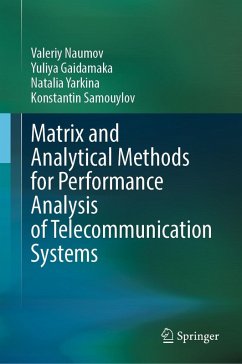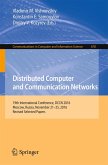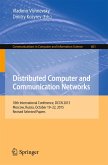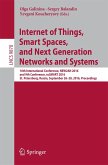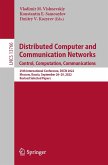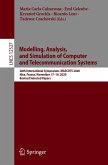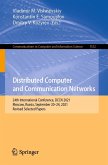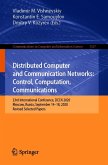The global telecommunication network constantly is being improved to keep up with needs to exchange, store, and process huge, ever-growing amounts of data.This unique, concise textbook provides an introduction to the modelling and performance analysis of telecommunication systems.
As new communications technologies emerge and evolve, in parallel engineers work to develop new and enhance existing techniques and even theories to analyze system performance. Communication systems and networks are generally modeled using probability frameworks, and especially queuing systems. However, for model analysis, other mathematical techniques are also widely employed, namely matrix methods of linear algebra. Unlike most textbooks on queueing theory, in particular those dealing with telecommunication applications, the main focus of this volume is on resource-loss-system (ReLS) models. Before discussing ReLS models, it provides an overview of the essential prerequisites, from the basic modelsand techniques to more complicated matrix-analytical methods of queuing theory.
Topics and features:
This text/reference will be suitable for a broad interdisciplinary audience of students in mathematics and applied disciplines, such as computer science, electronics engineering, and operations research.
Dr. Valeriy Naumov works for the Service Innovation Research Institute (PIKE) in Helsinki, Finland, a public non-profit research institute that focuses on theoretical and practical research for services and their improvement. Prof. Yuliya Gaidamaka, Dr. Natalia Yarkina, and Prof. Konstantin Samouylov work in the Dept. of Applied Probability and Informatics of the Peoples' Friendship University of Russia (RUDN University) in Moscow, Russia.
As new communications technologies emerge and evolve, in parallel engineers work to develop new and enhance existing techniques and even theories to analyze system performance. Communication systems and networks are generally modeled using probability frameworks, and especially queuing systems. However, for model analysis, other mathematical techniques are also widely employed, namely matrix methods of linear algebra. Unlike most textbooks on queueing theory, in particular those dealing with telecommunication applications, the main focus of this volume is on resource-loss-system (ReLS) models. Before discussing ReLS models, it provides an overview of the essential prerequisites, from the basic modelsand techniques to more complicated matrix-analytical methods of queuing theory.
Topics and features:
- Provides a broad-based introduction
- Covers matrix and other methods for performance analysis
- Offers a chapter on application examples and case studies
- Includes appendixes on random elements, Markov chains, and queuing models
- Appeals to an interdisciplinary audience
This text/reference will be suitable for a broad interdisciplinary audience of students in mathematics and applied disciplines, such as computer science, electronics engineering, and operations research.
Dr. Valeriy Naumov works for the Service Innovation Research Institute (PIKE) in Helsinki, Finland, a public non-profit research institute that focuses on theoretical and practical research for services and their improvement. Prof. Yuliya Gaidamaka, Dr. Natalia Yarkina, and Prof. Konstantin Samouylov work in the Dept. of Applied Probability and Informatics of the Peoples' Friendship University of Russia (RUDN University) in Moscow, Russia.
Dieser Download kann aus rechtlichen Gründen nur mit Rechnungsadresse in A, B, BG, CY, CZ, D, DK, EW, E, FIN, F, GR, HR, H, IRL, I, LT, L, LR, M, NL, PL, P, R, S, SLO, SK ausgeliefert werden.

